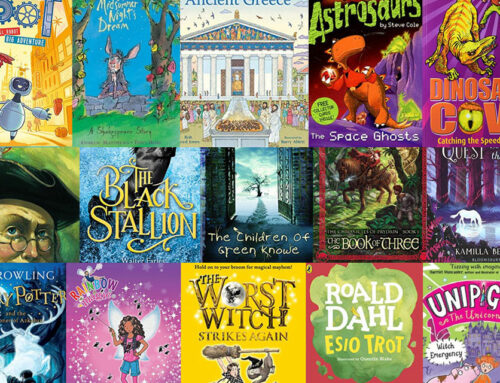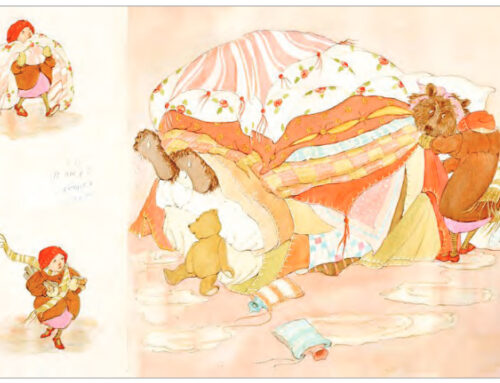From the Archive
This article was originally published in the Winter 2015 edition of the Potential Plus UK ezine Ignis

Are you rich?
No? Oh dear, you don’t stand much of a chance then. You had to come from a background that at least meant that you weren’t required to work all day in the fields or family business and that you could afford the fees or be in a position of wealth and authority that entitled you to free education. Without this background you would probably become an apprentice to a family member or other skilled worker, learning “on the job”. School hours were too long to combine education and work; for example, Tudor school children were expected to attend school 13 hours a day for five and a half days a week in the summertime, and 40-44 weeks a year. That is approximately 2000 school hours a year, twice the modern day requirement.
The majority of schooling was delivered by the church. If you were lucky and lived near a religious establishment prepared to run lessons, you might be able to attend small, informal schools in parish churches, song schools in cathedrals, almonry schools attached to monasteries, chantry schools or guild schools. However you learned by rote or from a horn book (an alphabet primer framed in wood and covered with a thin plate of transparent horn), and the curriculum of these schools was limited to basics; learning the alphabet, psalters, and religious rites and lessons such as the Ten Commandments and the Seven Deadly Sins. In towns during the Tudor and Elizabethan periods Petty or “Dame” schools arose for children aged 5-7. Taught by a local housewife their focus was on lessons in behaviour and the catechism.
As trade towns grew, preparatory grammar and grammar schools were established, often sponsored by wealthy local merchants, where children learned Latin grammar, composition and translation. Although there is no record showing it, it is believed that, due to his father’s position as an Alderman, Shakespeare attended the King Edward VI Grammar School in Stratford between the ages of 7 and 13 or 14. Children of really rich families might find themselves at elite, privately endowed boarding schools like Winchester and Eton.
At the age of 13 or 14 this formal education ended for the majority of boys. If you had a scholarly aptitude you could continue to study at a university. Oxford and Cambridge were established as centres of learning in the 12th and 13th centuries.

Are you a boy?
Yes? Phew! That’s lucky. If your parents can afford to pay then you can access an education.
No? Commiserations. If your family is exceedingly wealthy, you may receive some form of home tutoring and be allowed access to a few courses but daughters were virtually ignored when it came to formal education. You would learn home management, rudimentary accounting and perhaps the basics of different trades from your mother but the world of work was a man’s. You could always join a convent, you might be taught a basic education there, but the emphasis was on religious texts and discipline.

Do you speak and read Latin?
No? Well that wipes out your chances. Latin was the universal language of the Middle Ages, the language of religion, education and trade. Grammar schools came into existence to teach Latin as it was necessary for trade within England and Europe. You learned Latin, studied classical scholars such as Ovid, Horace and Cicero and were expected to spend your school day conversing in Latin. Anyone caught talking in English would be punished and you could be beaten for this or even failing exams. Some schools taught Greek as an extra.

Do you believe that an elephant’s only fear is of dragons?
During the Middle Ages the curriculum, developed primarily by the Church with an emphasis on religion and philosophy, gradually settled down into the study of 7 major disciplines: arithmetic, geometry, grammar, rhetoric, logic, astronomy and music; all taught in Latin. Studies outside of these disciplines, such as the natural sciences, came from encyclopaedias and were based on ancient Roman works like the writings of Pliny. Successful completion of a university course based on these disciplines resulted in the title Master of Arts. Eventually universities began offering further education, or Doctorates, in theology, medicine, law and philosophy. Students with an aptitude for art were welcomed and trained by the Church, as they wanted people who could scribe and illustrate their religious books or create paintings, frescos and murals to visually depict Bible stories for those who couldn’t read.

Are you hardy?
You would need to be. At the age of 14 or 15 you left home, went to university, and not only had to organise living arrangements and accommodation, you also had to identify which tutors you wanted to study under and persuade them to take you. Mind you, you also had the freedom to leave the tutor without paying if you
didn’t like their course. You studied from 6am to 5pm, with a break between 10am and 12 noon. At Oxford, records show that no fires were allowed in rooms, even in rooms where lectures were given and no college had glass in their windows before 1300. The only warmth came from straw spread on the floor. If students broke the college rules they could be sent to prison or even be excommunicated. By the end of the 15th century, corporal punishment had been introduced. For example, students could be beaten for selling their books without permission. There were also numerous armed fights between students and the townspeople and between students themselves when debates became too heated. One student even attacked his professor with a sword in the lecture room!

Can you write good begging letters?
It must have been a real struggle to get there and survive but there were some students who got to university who weren’t particularly well-off. Records at Oxford show students eating tripe and cheap cuts of meat, although those with a richer background ate “well peppered pies of pork, chicken and eels… pigeons, geese and other fowl roasted on a spit.” A lot of the letters that have survived from students at this period show that they usually wrote home only when they were in need of something. Students being students, even rich ones tended to run short of money at University, leading to the common wail of the weary parent “Primum carmen scolarium est petitio expensarum, nec umquam erit epistola que non requirit argentum.” (translation: A students’ first song is a demand for money and there will never be a letter which doesn’t ask for cash) 1
Some things never change!
1 “The Life of Medieval Students as Illustrated by their Letters” by Charles Haskins. https://www.jstor.org/stable/1832500?seq=1#page_scan_tab_contents

Still Interested?
Why not make a start by learning European Classical Languages? Then try reading digital facsimiles from some of the sites listed at: https://sites.google.com/view/helontheweb/manuscripts-and-facsimiles
OpenLearn, the free learning website from the Open University, offers Getting Started courses in Classical Latin https://www.open.edu/openlearn/history-the-arts/getting-started-on-classical-latin/content-section-0?active-tab=description-tab
and Classical Greek https://www.open.edu/openlearn/history-the-arts/getting-started-on-ancient-greek/content-section-overview?active-tab=description-tab
Lexicity offers a comprehensive index for ancient language resources on the internet. (2024 – please note this website is now only available on the Internet Archive Wayback Machine but resources are still relevant) https://web.archive.org/web/20221115084724/http://lexicity.com/
Classical book based courses include:
The Cambridge Latin Course https://www.clc.cambridgescp.com/home-clc part of the Cambridge School Classics Project https://www.cambridgescp.com/
Or if you want a simple but fun introduction you could try the Minimus course designed for ages 7+ https://www.minimuslatin.co.uk/
An introductory book to Greek that is recommended as a user-friendly, fast track to GCSE level is John Taylor’s Greek to GCSE.
For those wanting to study Ancient Greek more thoroughly try the JACT (Joint Association of Classical Teachers) Reading Greek Course: Independent Study Guide, Text and Vocabulary, Grammar and Exercises.

What Next?
Thinking about what to do after school? Check out these websites to help you find out more about full and part-time degree courses, profiles of UK universities and colleges, student satisfaction, graduate employment rates, application advice.
About the Author: Geraldine Glover is Potential Plus UK’s Community Information Coordinator. She is a Chartered Information Professional with a background in editorial work and information science. She is the mother of two children with high learning potential.






